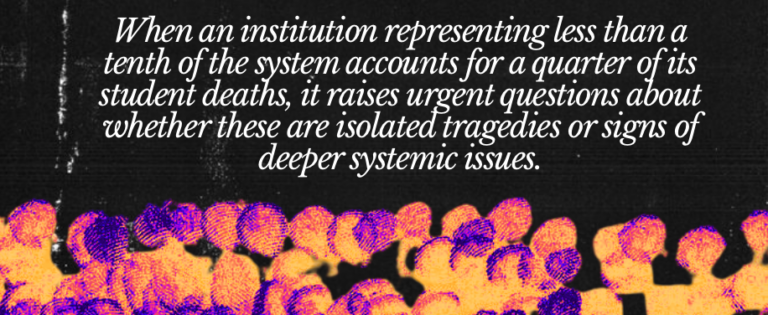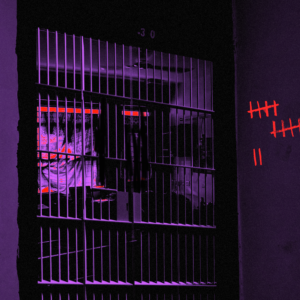In the first part of this series of articles, we gave a detailed account of the functioning of messes at IIT Kanpur (IITK). We explained in detail how the mess establishment charge (MEC) and the monthly mess bill are calculated. Furthermore, our account included how the money collected from the students as MEC and the monthly bill is spent to pay the workers, contractors, and vendors. Additionally, we discussed the role HECs, students, contractors, wardens, and IITK administration play in the functioning of the mess facility. The important takeaway points from the previous part are as follows:
BDMR = Total expenditure on raw material in a month/No. of hall residents x No. of days in the month
Monthly mess bill = (BDMR x Number of days in the month) + Extra Food Items Purchased + HDF
| S.No. | Description | Amount (Rs) |
| 1. | Salary (1200 man-days) | 7,74,000 |
| 2. | Service Charge (8% of workers’ salary) | 61,920 |
| 3. | GST (18% of S.No. 1 & 2) | 1,50,465 |
| 4. | PF (12% of workers’ salary) | 92,880 |
| 5. | ESI (3.75% of workers’ salary) | 29,025 |
| 6. | Total | 11,08,298 |
| S.No. | Description | Amount (Rs) |
| 1. | MEC (per semester of 5-months) | 13,000 |
| 2. | MEC per month | 2,600 |
| 3. | One-month MEC of 450 residents | 11,70,000 |
| 4. | Total Salary paid to the workers (in 1 month) | 11,08,298 |
Another key point of the previous part was that it is the HECs and residents who play a key role in the management of all the mess affairs such as the selection of contractors, selection of vendors, quality of raw materials, mess menu, etc. The students need to remember that they pay for everything in the mess and they must ensure that the control of management remains with them to ensure good quality food at affordable prices.
In this part, we talk about the workers, whose labor makes sure that we are served fresh and hygienic food thrice a day. The workers of the mess found little mention in the previous report as their participation in the daily functioning of the mess calls for greater attention and focus.
The HECs, wardens, and concerned IITK officials such as DoSA, and ADHA engage in the mess affairs for a limited period. An elected HEC’s involvement continues for one year and that of the wardens & concerned IITK officials, for three years only. The mess workers are the only experienced members whose practical knowledge about the workings of a mess surpasses others. Many workers have been working in the messes of IITK for as long as 15 years. It is these experienced workers who make possible the smooth functioning of mess daily. This second part will cover the mess work and working conditions of the mess workers in detail.
Employment & Deployment of workers in Mess
- As per the contract
As per the current Fixed Cost Service Model (FCSC), every year the institute invites tenders for providing services for all the messes. The contractor who qualifies the technical and financial bid during the tendering process is selected for providing services by an individual hall based on experience and the lowest financial bid. The financial bid includes the minimum wages of the worker to be employed in the mess and the service charge (profit of contractor).
The only role played by the contractor in the running of the mess is employing the required number of workers in the mess to ensure smooth functioning while following the labor laws. The contractor hires the mess staff which includes a mess manager, mess accountant, mess storekeeper, supervisor, cook, and workers involved in cooking and serving food. The hired workers are deployed in the kitchen or service area based on their experience and expertise. The contractors are the final authority to hire and dismiss the workers from employment.
- As per the actual practice at IITK
As mentioned above, the mess workers are the only experienced stakeholders involved in the functioning of the mess. This experience and coordination among workers are very vital for the proper functioning of the mess. It takes a lot of time to train a new worker according to the working system of IITK messes. If every year a new contractor deploys a new workforce, it can hamper the smooth functioning of the mess. The services can become chaotic till the recruits gain enough experience of the working condition and nature of the services required at the mess. To ensure that no such condition arises in the mess, the workers of all the messes are retained even though contractors are changed.
It is through the continuous engagement of the HECs, hall residents, mess workers, and campus community that the wardens and admin have come to an informal agreement that workers are to be retained for a seamless service in the mess. At times when the requirement for new workers arises, the contractor recruits workers. In case the number of workers is higher than the required number in a hall they are transferred to another hall wherever there is a similar requirement. HECs and administration must ensure that no malpractices such as favoritism and corruption take place during employment and deployment of workers by regularly issuing necessary directives to halls and contractors.
Role of workers in the mess
Mess workers are the backbone of the functioning of the mess facilities at IITK. Their work includes:
- the preparation of ‘basic daily meal’ (BDM), which includes food items consumed by residents in breakfast (such as daily changing items like poha, dosa-sambar, etc. along with regulars like sprouts, milk, tea, etc.), lunch, and dinner (one dal, one sabzi, rice, chapati, sambar, fruits, etc.).
- the preparation of extra food items such as veg & non-veg items prepared almost every day on prior bookings.
- to prepare the items cooked on the order of individual residents (Omelettes, paneer bhujia, fried rice, etc.).
- apart from the preparation of food, workers are tasked with the servicing of the food to the residents.
- other works of mess workers include the pre-cooking preparations i.e., cleaning and cutting of vegetables, cereals, etc, cleaning of kitchen and service areas, cleaning of utensils, kitchen, dining and storage area after services.
Salary and other benefits for the workers
IIT Kanpur is mandated by The Minimum Wages Act 1948 and The Minimum Wages (Central) Rules, 1950 to pay all contractual workers the central minimum wage. For each workday, a mess worker is paid the central minimum wage, which is Rs 654 for unskilled workers, Rs 724 for semi-skilled workers (assistant cook, cashier, assistant storekeeper, non-veg cook), skilled workers Rs 795 (Head cook, accountant, supervisor, and head storekeeper), Rs 864 for the highly skilled worker (Manager).
Apart from the salary, the workers are entitled to social benefits in the form of Provident Fund (PF) and health insurance through Employee State Insurance (ESI) that contractors deposit in the workers’ accounts at Employees’ Provident Fund Organization and Employees’ State Insurance Corporation respectively.
Here, we would like to mention that the minimum wages and other benefits for the workers are the product of a long struggle of workers and the concerned campus community, and their continuation depends on continued vigilance and engagement by all the stakeholders.
Working Conditions of Mess Workers
Though much attention is given to the taste and quality of the food, very little is talked about the workers who toil through the day and run the mess. We feel the students, the primary users of the mess facility should be aware of the ground realities of the working conditions in messes.
Messes at IITK work on an arbitrarily fixed ratio of one mess worker per 11.25 students. The contractor is bound to maintain this ratio, as per the contract. To understand how the present ratio works, let us assume that a hall of residence Y houses 450 residents. As per the ratio of (1:11.25), 40 workers must be present at work every day. Taking into consideration that each worker is supposed to get 4 days off in a month, a hall must employ 47 workers for 450 students.
Workers are supposed to reach the hall mess before 6 am and start their work and they leave around 10 pm, taking only a couple of hours of breaks in between. The timing for mess services for residents is 7:30 am to 10:00 am for breakfast (8 to 10:30 am on weekends), 12:30 pm to 2:30 pm for lunch, and 7:30 pm to 9:30 pm for dinners. Workers are supposed to be present in the mess around 1.5 hours before the service of food to the residents. A worker for the breakfast comes to the mess at around 6 am and leaves around 10:30 am, after preparing and serving the breakfast and performing the necessary required work for the preparation of lunch. These workers again report to the mess at noon for lunch preparations and services and leave around 3:00 pm, after preparing and serving the lunch and performing the requirements for the preparation of dinner. At 6:30 pm workers again return to work for dinner preparation and services and leave at 10:00 pm after ensuring the necessary preparations for the next morning’s breakfast. In this way, a worker spends around 10.5 hours at work each day. However, the workers are engaged in the mess for more than 16.0 hours a day, since in their rest time they cannot work or engage themselves in any other activity. This 10.5 hours of day’s work is counted as one working day for the workers. This is a clear violation of labor law mandated for a central organization to be followed.
Section 24 of The Minimum Wages (Central) Rules, 1950 says that: the number of hours of work that shall constitute a normal working day.
- The number of hours which shall constitute a normal working day shall be:
- in the case of an adult – 9 hours;
- in the case of a child – 4 & 1/2 hours.
- The working day of an adult worker shall be so arranged that inclusive of the intervals of rest if any, shall not spread over more than twelve hours on any day.
As per point a, of section 24, the workers who are supposed to work for a maximum of 9 hours are made to work 10.5 hours daily. Whereas, as point b mandates that the working day of a worker shall not exceed 12 hours after including the time of rest, here in IITK the working days of the workers go up to 16.5 hours.
Further, Section 25(1) of The Minimum Wages (Central) Rules, 1950 says that: When a worker works in employment for more than nine hours on any day or for more than forty-eight hours in any week, he/she shall in respect of overtime work, be entitled to wages:
- in the case of employment in agriculture, at one and a half times the ordinary rate of wages;
- in the case of any other scheduled employment, at double the ordinary rate of wages;
Here also, even though the working hours and the working days of the mess workers exceed the time frame for normal working hours/day, the workers are not paid for overtime work that they perform every day. These above-mentioned violations of labor laws are not paid the attention that they require.
The overburdening of work for the mess workers is not just limited to extended working hours. The ever-increasing mess menus further add to the workload of these workers. By adding multiple special items to the menu, the HECs and the mess committee (the residents) force the workers to prepare more food items in that given time. For a mess worker more special items simply mean more unpaid work since they are given no overtime for the extra work.
The workers prepare and serve food not just for hall residents but also for the visitors from other halls, SBRA, RA tower, etc. Effectively, workers are further forced to work extra without being paid. Here, it is important to mention that the money collected by serving food to the non-hall residents is used to decrease the BDMR of the hall residents, whereas the workers who work extra to serve these guests get nothing from this money. This situation is further aggravated during the institute festivals like Antaragani & Techkriti where the number of non-IITK guests increases manifolds.
Here in the case of extra coupons sold to non-residential guests, it is important to remind ourselves that the workers are employed strictly according to the number of residents residing in the hall on a particular day (as per the 1:11.25 ratio). The food prepared for and served to the non-residents is not part of the calculations for the employment of workers. So, in this way, the services provided by the workers to these guests are simple unpaid work.
Beyond this everyday exploitation, on occasions like the Hall Day celebrations, apart from preparing the regular breakfast and lunch, the mess workers are forced to prepare the ‘gala dinner’ for as high as 1000 guests. For these so-called gala dinners, they are engaged in food preparations from at least one day before hall day. Not only is their labor unpaid, in most cases, but they also are not even offered a respectful plate of dinner and are asked to eat whatever is left in the end.
As discussed in the above section, the working conditions of the mess workers are over-exploitative and underpaid according to the labor laws of the country. A serious discussion among the students and the other campus community on this issue is completely missing. Most of the discussions of the HECs, the mess committee, and the residents are limited to taste, quality, and the elaborate menu only. On the other hand, IITK admin through its activities such as the attempt to implement Per Student Per day (PSPD) mess model and through recommendations in the section [Sec 9 (b)] of the HMC report, 2021 seems determined to create more exploitative conditions for the workers. The working conditions of mess workers, and their physical and mental well-being is never part of any serious discussion at any platform of this institute of national importance.
Visible Work, Invisible Workers
This is the situation of the mess workers under the present working model (Fixed Cost Service Model (FCSC)) of the hall mess facilities on the campus. Intending to make new students on the campus familiar with the mess functioning, we have presented the whole functioning of messes through a detailed discussion of MEC, the monthly mess bill, how BDMR is calculated, the roles of residents and HEC in mess affairs along with the role and working conditions of workers in the messes. We have stressed in the last part that the students must take a proactive role in every aspect of the functioning of the mess to ensure healthy food at affordable prices for all residents. Here also, we urge the residents to widen the scope of their discussion about the mess. A more holistic discussion should take into consideration the mess workers’ perspectives on the working conditions and other issues related to their workspace. Since students primarily avail the services provided by the workers, it is the responsibility of the student community to ensure that IIT Kanpur as a principal employer makes sure that no violation of labor law takes place, and all the workers are provided with the minimum wages, health and social benefits that they are legally entitled to.
In the next part of this series of articles, we will be presenting our view on how the present mess model can be improved along with the analysis of an alternative mess model Per Student Per day (PSPD) or the thali system. It is important to understand the PSPD system since it has been proposed twice by the administration and has not been implemented primarily due to the opposition from the students.
Written by: Forum of Critical Thinking (FCT-IITK)
Forum of Critical Thinking (FCT-IITK) is an informal group of IIT Kanpur students and community members aiming to develop a critical understanding of issues facing the institute and the country. FCT-IITK formed out of a series of discussions amongst students who were concerned about the erosion of democratic values both within the campus and in the country. This forum aims to understand the systemic reasons that underlie the problems faced by the campus community, and attempts to understand it in relation to the socio-political context we occupy within the larger body politic of the nation. Follow them @ https://www.facebook.com/iitkfct. You can reach them @ criticalthinkingforumiitk@gmail.com.











